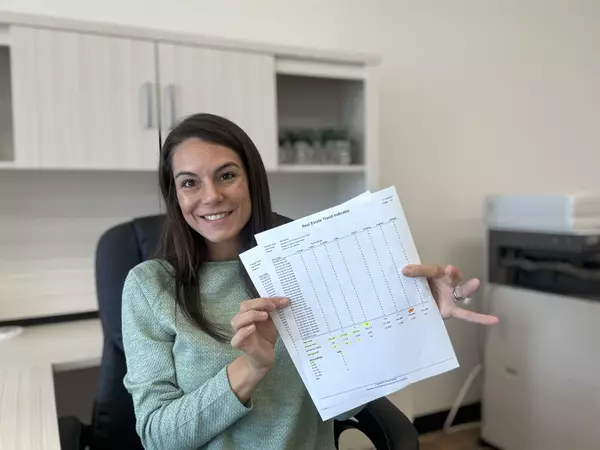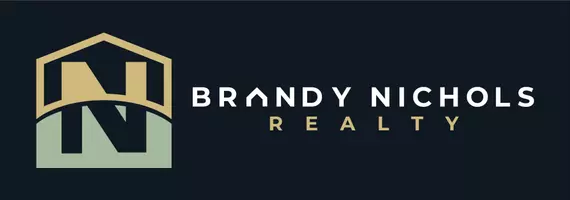

Southern Charm in the Mortgage Process: Questions to Ask Your Lender When Buying a Home
Southern Charm in the Mortgage Process: Questions to Ask Your Lender When Buying a Home When embarking on the journey of purchasing a home, finding the right lender is crucial to ensure a smooth and successful transaction. The lender you choose will have a significant impact on your mortgage experience, including interest rates, loan terms, and overall customer service. To make an informed decision, it's essential to ask the right questions before selecting a lender. In this article, we'll explore key questions you should always ask when choosing a lender for your home purchase. What Types of Home Loans Do You Offer? Understanding the types of home loans a lender offers is essential to determine if they can meet your specific needs. Ask about conventional loans, FHA loans, VA loans, and any other specialized programs they may offer. Inquire about down payment requirements, interest rates, and eligibility criteria for each loan type to determine the best fit for your financial situation. What Interest Rates Do You Offer? Interest rates significantly affect the overall cost of your mortgage. Ask the lender about the current interest rates they offer and whether they can provide a rate lock to secure the rate for a specific period. Inquire about any potential discounts or incentives that may be available to you based on your credit score, down payment, or other factors. What Are the Loan Terms and Conditions? Understanding the loan terms and conditions is crucial for comparing different lenders. Ask about the loan duration, monthly payment amount, and any additional fees or charges associated with the loan. Inquire about prepayment penalties, late payment policies, and any potential options for refinancing in the future. What Documents and Information Will You Require? The mortgage application process involves providing various documents and information to the lender. Ask for a comprehensive list of the required documents, such as tax returns, pay stubs, bank statements, and employment history. Understanding the documentation requirements upfront will help you gather the necessary information efficiently. Can You Provide a Loan Estimate? A Loan Estimate is a document that outlines the estimated costs and terms of the loan. Ask the lender if they can provide you with a Loan Estimate, which includes details such as the loan amount, interest rate, closing costs, and monthly payment. This document allows you to compare offers from different lenders and make an informed decision. How Long Does the Loan Approval Process Typically Take? Understanding the timeline for loan approval is crucial, especially if you have specific deadlines to meet. Ask the lender about the average processing time for loan applications and the steps involved in the approval process. Knowing the timeline upfront will help you plan accordingly and avoid unnecessary delays. What Sets Your Lending Institution Apart? Ask the lender to highlight what sets their lending institution apart from others. Inquire about their expertise, customer service philosophy, and any additional resources or tools they provide to assist borrowers. Understanding their unique value proposition will give you insight into their commitment to customer satisfaction. Choosing the right lender for your home purchase is essential for a smooth and successful mortgage experience. By asking the key questions mentioned above, you can gather the necessary information to make an informed decision. Remember to consider factors such as loan options, interest rates, loan terms, documentation requirements, Loan Estimates, processing time, and the lender's unique offerings. Taking the time to ask these questions will help you find a lender that aligns with your needs and sets you up for a positive home buying journey.
Read More

The Power of Peace of Mind: Understanding the Importance of Home Inspections
The Power of Peace of Mind: Understanding the Importance of Home Inspections When it comes to buying or selling a home, one crucial step that should never be overlooked is the home inspection. A home inspection is a comprehensive examination of a property's condition, identifying potential issues or defects that may impact its value or pose safety concerns. Whether you are a buyer or a seller, a home inspection provides invaluable insights and peace of mind throughout the real estate transaction. In this article, we will explore the importance of home inspections and why they are essential when selling or purchasing a home. Uncovering Hidden Issues: One of the primary reasons for a home inspection is to identify any hidden issues that may not be apparent during a casual walk-through. A qualified home inspector thoroughly examines the property's structure, systems, and components, including the roof, foundation, electrical wiring, plumbing, HVAC systems, and more. By uncovering potential problems early on, both buyers and sellers can make informed decisions about repairs, negotiations, or adjustments to the purchase price. Assessing Safety Hazards: Safety should always be a top priority when buying or selling a home. A home inspection helps identify safety hazards such as faulty wiring, inadequate ventilation, mold, or potential structural issues. These findings allow buyers to understand the risks associated with the property and take necessary steps to address any safety concerns. For sellers, addressing safety hazards before listing the home can improve its marketability and protect potential buyers. Negotiating with Confidence: A home inspection report provides buyers with a strong foundation for negotiations. If the inspection reveals significant issues, buyers can request repairs or financial concessions from the seller to cover the costs. Alternatively, sellers can choose to address the identified issues themselves before listing the property, ensuring a smoother transaction and avoiding potential deal-breakers. The insights gained from a home inspection allow both parties to negotiate with confidence, creating a win-win situation. Planning for Future Expenses: For buyers, a home inspection report not only reveals existing issues but also provides insights into potential future expenses. By understanding the condition of the property and its components, buyers can plan for necessary repairs or replacements in the coming years. This knowledge helps buyers budget effectively and make informed decisions about their long-term investment. Building Trust and Transparency: A transparent and honest approach builds trust between buyers and sellers in a real estate transaction. By voluntarily conducting a home inspection before listing, sellers demonstrate their commitment to full disclosure. This level of transparency can attract serious buyers who appreciate the seller's integrity. For buyers, a seller-provided inspection report can instill confidence in the property and the overall transaction. Whether you are buying or selling a home, a home inspection is an essential step in the process. It provides a comprehensive evaluation of the property's condition, identifies potential issues, and offers peace of mind for all parties involved. From uncovering hidden problems and assessing safety hazards to facilitating negotiations and planning for future expenses, a home inspection ensures transparency, informed decision-making, and a smoother real estate transaction. Embrace the power of peace of mind by prioritizing home inspections in your home buying or selling journey.
Read More

Southern Hospitality for Your Wallet: 5 Tips to Save on Homeowners Insurance
Southern Hospitality for Your Wallet: 5 Tips to Save on Homeowners Insurance Homeowners insurance is a vital safeguard that protects your home and possessions from unexpected perils. However, it's no secret that insurance premiums can add up, impacting your monthly budget. If you're a homeowner in Louisiana, you'll be pleased to know that there are several practical strategies to help you save money on homeowners insurance without compromising the coverage you need. In this article, we'll explore some effective ways to reduce your homeowners insurance costs in Louisiana. Shop Around and Compare Quotes: One of the most effective ways to save money on homeowners insurance is by shopping around and comparing quotes from different insurance providers. Rates can vary significantly, so obtaining multiple quotes allows you to identify competitive pricing and potentially negotiate a better deal. Consider reaching out to local insurance agents or using online comparison tools to find the best options available in Louisiana. Increase Your Deductible: Your deductible is the amount you pay out of pocket before your insurance coverage kicks in. By opting for a higher deductible, you can lower your insurance premium. However, it's important to ensure that you have sufficient funds readily available to cover the deductible in case of a claim. Assess your financial situation and determine an appropriate deductible that balances potential savings with your ability to pay in the event of a loss. Bundle Your Policies: Many insurance companies offer multi-policy discounts, also known as bundling, for customers who purchase multiple insurance policies from them. Consider bundling your homeowners insurance with other policies, such as auto or life insurance, to take advantage of potential discounts. This consolidation can lead to substantial savings while simplifying your insurance management. Improve Home Security: Enhancing your home's security measures can not only provide peace of mind but also lead to insurance premium discounts. Install burglar alarms, smoke detectors, deadbolts, and security systems that are monitored by a central station. These safety measures demonstrate to insurers that your home is less prone to theft or damage, making you eligible for lower insurance rates. Maintain a Good Credit Score: Your credit score can influence your homeowners insurance premium in Louisiana. Insurers often use credit-based insurance scores to assess risk levels. By maintaining a good credit score, you may qualify for lower premiums. Pay bills on time, reduce debt, and regularly review your credit report to identify and correct any errors. Consider Location-Specific Factors: In Louisiana, certain location-specific factors can impact your homeowners insurance rates. Take steps to mitigate these factors, such as reinforcing your home against hurricanes or installing storm shutters. Additionally, living in close proximity to fire hydrants, having a professional monitoring system for fire alarms, or joining a local neighborhood watch program can also contribute to potential insurance premium savings. Review and Update Your Coverage: Regularly review your homeowners insurance policy to ensure you have the appropriate coverage for your needs. Over time, your requirements may change, and you may find that certain aspects of your policy are unnecessary or can be adjusted. Consult with your insurance agent to discuss potential modifications or discounts that align with your current situation. Saving money on homeowners insurance in Louisiana is possible with the right strategies. By shopping around for quotes, increasing your deductible, bundling policies, improving home security, maintaining a good credit score, considering location-specific factors, and regularly reviewing your coverage, you can find opportunities to reduce your insurance costs without compromising the protection your home and belongings deserve. Implement these smart savings strategies to optimize your homeowners insurance in Louisiana and achieve a balance between coverage and affordability.
Read More

Rocking Chairs and Real Estate: Why Today's Southern Market is Built to Last
Rocking Chairs and Real Estate: Why Today's Southern Market is Built to Last The real estate market has always been subject to ups and downs, with periods of growth followed by periods of decline. Given the recent surge in home prices and robust demand, some individuals may express concerns about a potential market crash. However, when we closely analyze the current real estate landscape, it becomes evident that today's market is characterized by stability, growth, and several key factors that make a crash highly unlikely. In this article, we will explore why today's real estate market is resilient and poised for continued success. One of the primary reasons why the real estate market is unlikely to crash is the presence of strong market fundamentals. The current housing demand is driven by a combination of factors such as low mortgage rates, a growing population, limited housing supply, and increased affordability. These underlying factors create a solid foundation for the market, supporting sustained growth rather than a sudden crash. A significant contributor to the market's stability is the persistent supply and demand imbalance. Across many regions, there is a shortage of available homes relative to the number of prospective buyers. This scarcity of inventory creates a situation where demand continues to outpace supply, driving home prices upward. As long as this imbalance persists, the market is less susceptible to a crash as there are still eager buyers willing to compete for limited housing options. Population growth plays a crucial role in the stability of the real estate market. Many areas, including major cities and desirable regions, continue to experience population growth driven by factors such as job opportunities, lifestyle preferences, and migration patterns. The increasing population creates sustained demand for housing, ensuring a steady stream of buyers and supporting the market's stability. The real estate market crash of the late 2000s serves as a significant lesson that has influenced industry practices and regulations. Since then, lending standards and regulations have been strengthened, ensuring that borrowers are more qualified and lenders exercise prudence. The stricter regulations and improved oversight provide a safeguard against the risky lending practices that contributed to the previous crash. While concerns about a potential real estate market crash are understandable, a closer examination reveals a market that is built on solid foundations and resilient to drastic downturns. The strong market fundamentals, supply and demand dynamics, population growth, favorable economic factors, government interventions, and lessons learned from past experiences all contribute to the stability and growth of today's real estate market. While some localized fluctuations may occur, the overall outlook remains positive. Buyers, sellers, and investors can have confidence in the durability of the current real estate market and its potential for continued success.
Read More
Categories
Recent Posts










